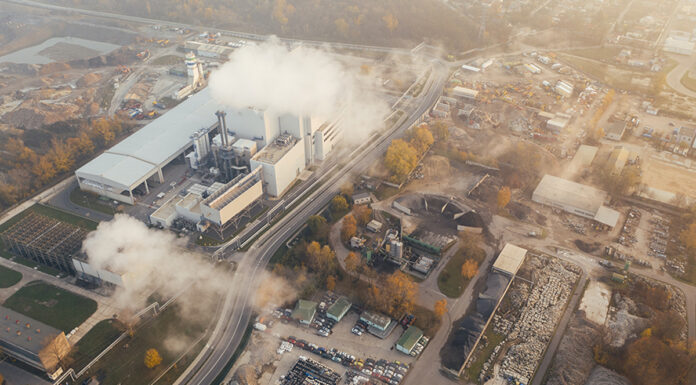Have you ever stopped to think about the intricate web of life that surrounds us every day? The birds chirping outside your window, the plants growing in your garden, and the insects buzzing around your head all contribute to the incredible diversity of life on our planet. Biodiversity refers to the variety of living organisms, including plants, animals, fungi, and microorganisms, that make up our natural world. It supports everything in nature that humans need to survive, such as food, clean water, medicine, and even shelter. But why is biodiversity so important, and what would happen if we lost it? This article will discuss the importance of biodiversity and what we should all expect should we lose it.
The Importance of Biodiversity in Ecosystem Dynamics
- Human Well-being and Nutrition
- Ecosystem Functionality and Stability
- Water Quality and Purification
- Medicinal and Pharmaceutical Value
- Climate Regulation and Carbon Sequestration
- Erosion Control and Soil Stability
Human Well-being and Nutrition
Biodiversity is essential for human nutrition in a number of ways. It ensures the sustainable productivity of soils, provides the genetic resources for all crops, livestock, and marine species harvested for food, and ensures that we have access to a variety of nutritious foods. The nutritional composition of different foods can vary dramatically, so it is important to have a diverse diet. Diets that are based on a variety of food species can help protect against disease by addressing the problems of micronutrients and vitamin deficiencies. Loss of agricultural biodiversity can threaten our health, livelihoods, and future food security.
Ecosystem Functionality and Stability
Biodiversity is also essential for maintaining the functionality and stability of ecosystems. Greater species diversity leads to greater ecosystem stability. Ecosystems with more diversity of life are better able to sustain themselves in the face of external stresses, such as climate change, pollution, and habitat loss.
Moreover, species in an ecosystem depend on each other for food, keeping birth and death rates in a balance that is sustainable for the ecosystem. Ecosystem stability ensures that life is supported, our air is breathable, and water is worth drinking. The importance of biodiversity in an ecosystem is that it provides a range of ecosystem services essential for human well-being, including food, fuel, fiber, and clean water.
Water Quality and Purification
Water is undoubtedly a vital ecosystem service that supports all life. However, biodiversity plays a key role in maintaining water quality and helps ecosystems withstand pollution. The presence of a variety of species in an ecosystem improves its functioning through interspecific facilitation. Trees, bushes, and wetlands naturally slow down water and help the soil absorb rainfall, which reduces flooding. Biodiversity improves water quality and helps ecosystems withstand pollution. Human activities such as habitat loss and pollution are a growing threat to freshwater ecosystems. Therefore, it is critical to protect biodiversity in order to ensure the availability and quality of water for all.
Medicinal and Pharmaceutical Value
One more advantage of biodiversity is that it supplies the raw materials needed to develop medications and other health-related products. The loss of biodiversity can lead to the extinction of species that could have provided valuable medicinal resources. The Madagascar periwinkle plant, for example, has been used to develop drugs to treat leukemia and Hodgkin’s disease. Similarly, the Pacific yew tree has been utilized to create a medicine that cures ovarian and breast cancer.
Also, the decline in biodiversity can result in the disappearance of conventional knowledge regarding medicinal plants. Hence, safeguarding biodiversity is crucial to guaranteeing the accessibility of medicinal resources for future generations.
Climate Regulation and Carbon Sequestration
Biodiversity is also crucial to regulating the climate and sequestering carbon. Ecosystems, through vegetation, sediments, and soils, act as significant carbon reservoirs. Biodiversity enhances the resilience of ecosystems to various disturbances and shifting climates. To limit emissions and adapt to climate impacts, it is vital to conserve and restore natural spaces and the biodiversity they contain.
Biological diversity also plays a critical role in buffering against climate extremes, regulating hydrological cycles, protecting soils, regulating temperatures in urban areas, reducing food insecurity, and providing options for economic diversification. Therefore, we must acknowledge the importance of biodiversity in climate change mitigation and adaptation strategies, such as carbon sequestration and avoiding deforestation, while taking action to protect biodiversity.
Erosion Control and Soil Stability
Soil erosion is a natural process that can be accelerated by human activities such as deforestation, overgrazing, and land-use changes. Biodiversity is also very important in this aspect, as it helps in controlling erosion and ensuring soil stability. By reducing soil erosion, modifying soil porosity, stabilizing riverbanks, and encouraging water uptake by soils, biodiverse ecosystems have greater resilience against pests and diseases, which can help maintain soil fertility and productivity.
Soil biodiversity is necessary for nutrient cycling, regulating the dynamics of soil organic matter, soil carbon sequestration, and greenhouse gas emissions, and allowing soils to function properly. So, conserving biodiversity by adopting sustainable soil management practices is key to maintaining healthy soils and ensuring food security for future generations.
Conclusion
As you have learned in this article, biodiversity is essential for the processes that support all life on Earth, including humans. It is vital for ecosystems, food production, health, culture, and nature itself. The loss of biodiversity is a global crisis that requires immediate action. We must be aware of the importance of biodiversity, take responsibility for our actions, and make conscious efforts to conserve it by reducing pollution, protecting habitats, and promoting sustainable practices. By working together, we can make a difference and ensure a healthy planet for future generations.










